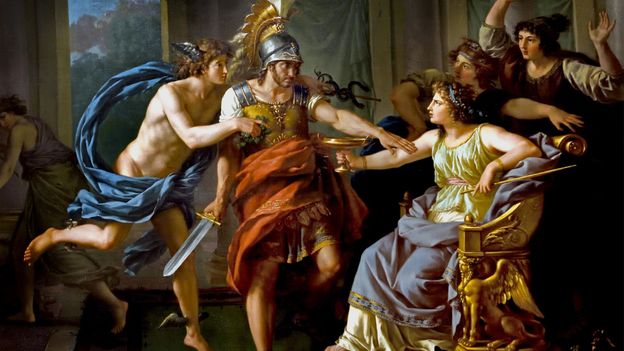
The Return: A Simplistic and Condensed Take on Homer’s *The Odyssey*

**The Enduring Legacy and Challenges of Retelling Homer’s *Odyssey***
The ancient Greek epic poem, *The Odyssey*, penned by Homer over two millennia ago, endures as a foundational narrative of Western literature. Its themes of survival, homecoming, identity, and morality resonate deeply across time, inspiring countless artistic reinterpretations. From ancient storytelling traditions to modern films, novels, and even speculative retellings, each adaptation seeks to reweave the intricate fabric of Odysseus’s journey. However, as Uberto Pasolini’s 2024 film *The Return* illustrates, retelling Homer’s masterpiece often presents a dual challenge—honoring the original’s complexity while adapting its narratives for contemporary audiences.
### Understanding Homer’s *Odyssey*
To appreciate the depth of *The Odyssey*, it is essential to grasp its narrative complexity. At its heart, the epic follows Odysseus, the “man of many wiles,” as he journeys home from the Trojan War, navigating perilous adventures and temptations while pondering the meaning of identity, heroism, and homecoming. Though the poem traditionally prioritizes the male hero, it also recognizes the contributions of its secondary characters, such as Penelope, Odysseus’s wife, who employs her own brand of cunning to protect her home, and Telemachus, their son, who struggles to come into his own identity.
The *Odyssey* is as much about storytelling as it is about the events themselves. It repeatedly underscores the transformative power of narrative, weaving flashbacks, divine interventions, and shifting perspectives into an intricate tapestry. Homer’s art lies in presenting Odysseus’s heroic facade while allowing glimpses of his human vulnerability. The result is a balance of adventure and introspection, myth and humanity.
### Reinterpreting the Epic
Modern retellings often aim to capture *The Odyssey*’s timeless appeal while reframing it for new contexts. Literary revamps, such as Margaret Atwood’s *The Penelopiad* or Madeline Miller’s *Circe*, succeed by giving voice to historically sidelined characters. These works deepen the narrative’s richness and reframe questions of agency, gender, and power inherent in ancient myths. Similarly, cinematic adaptations expand the visual possibilities of the text, recreating Homer’s breathtaking settings and timeless characters.
Yet these adaptations are often fateful experiments, bound by both artistic ambition and audience expectations. Stripping away the gods—as many modern retellings do—celebrates realism and psychology, but it also risks losing the mythic grandeur that defined Greek epic poetry. Similarly, while focusing on Odysseus as a flawed, traumatized man—a trend seen in *The Return*—can lend emotional nuance, it risks oversimplifying the richness of his characterization.
### The Case of *The Return*
Pasolini’s *The Return*, starring Ralph Fiennes as Odysseus and Juliette Binoche as Penelope, represents one such attempt to bring *The Odyssey* to life for modern audiences. Eschewing the gods and fantastical journeys, the film roots itself in stark psychological realism, emphasizing the cost of war and the trauma veterans carry back home. However, while its intentions are noble, *The Return* falters in capturing the storytelling spirit and layered complexity that define *The Odyssey*. It finds itself torn between paying homage to the epic source material and pursuing a minimalist approach that often feels hollow.
One of the film’s most notable missteps is its portrayal of Odysseus. In Homer’s *Odyssey*, Odysseus is a masterful storyteller, a man who manipulates—and is manipulated by—narratives. His guile and charisma are as central to the story as his physical strength. In *The Return*, however, Odysseus is reduced to a stoic, laconic shell, exuding world-weariness but offering little of the complexity audiences expect from the epic’s hero. His silence and stoicism render him a less dynamic figure, depriving the audience of the clever and complicated man at the heart of Homer’s tale.
Similarly, the film simplifies other iconic moments in ways that flatten the narrative. For instance, the pivotal scene where Eurykleia, Odysseus’s nurse, recognizes him by his scar, feels stripped of its emotional and symbolic resonance. In Homer’s *Odyssey*, the scar triggers a flashback that intricately links Odysseus’s identity to his past, weaving storytelling directly into the narrative. By omitting this layered storytelling, *The Return* misses a key thematic thread of Homer’s epic—how narrative binds past and present, memory and identity.
### The Struggle with Tone and Detail
Pasolini’s decision to portray *The Odyssey* through a minimalist, gritty lens also undermines the film’s coherence. Its sepia-toned visuals and austere setting attempt